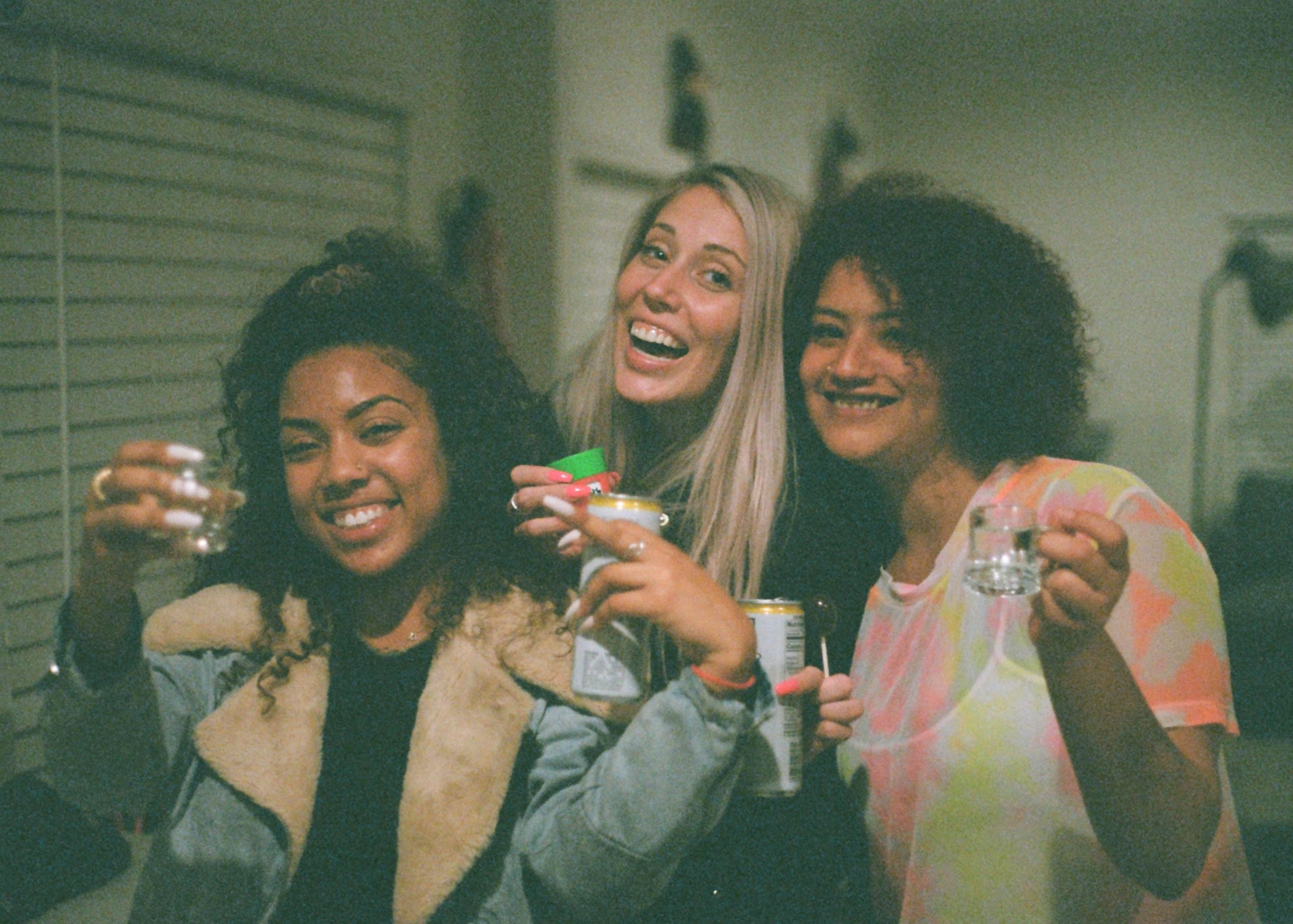So you’re at a party. Maybe it’s a small kickback in someone’s basement apartment or a house party down the block. You’re talking to your friends about the Adult Swim trend circulating on TikTok and how it highlights human creativity often inhibited by capitalism’s need for commodification. You know, typical Gen Z conversation. All of a sudden, you hear the unmistakable guitar riff from AC/DC’s “Thunderstruck.” Instant panic sets in. You know what comes next: binge drinking.
“Thunderstruck” is a drinking game where one participant starts drinking at the first verbalization of “thunder” and then stops as the next person begins drinking once the word is uttered again. For some, it’s a fun and exciting way to get absolutely hammered. For others, it throws them into a complete frenzy trying to avoid involvement in the game at all costs.
As someone who cannot drink due to medical reasons and is terrified of drunk people, the concept of anything beyond casual drinking feels otherworldly to me. Unfortunately, drinking culture is synonymous with a college lifestyle — or at least, it certainly feels that way.
Ironically, however, it’s not. I’m not alone.
As a member of Gen Z, it’s not altogether shocking that we drink less than millennials and other generations before us. In fact, Gen Z consumes around 20% fewer alcoholic beverages per capita than millennials, according to a 2018 Berenberg Research report. Studies show there are a number of reasons Gen Z engages less in drinking culture, but all point to one overwhelming influence: growing up in the internet age.
‘OMG don’t tag me in that!’
One of the most compelling reasons to not get completely wasted when going out — or even to not go out at all — is the increased likelihood that someone will take an unflattering picture and post it on social media. With an already fierce job market hindered by the coronavirus pandemic, getting caught drinking underage or drinking in a less than favorable manner can be extremely detrimental. It takes less than two seconds for someone to post something on Instagram, Snapchat or Facebook, so it’s unsurprising that Gen Z is overwhelmingly more cautious.
Viral images and videos are integral to Gen Z’s cultural zeitgeist and are as commonly discussed as any popular movie or TV show. Therefore, it’s so easy for anyone to go viral. And although becoming famous for doing absolutely nothing seems to be relatively attractive for such a generation — as constantly displayed by Instagram baddie Kylie Jenner or TikTok queen Charli D’Amelio — doing so because of bad behavior is much less desirable.
We Have Better Things To Do
Another reason Gen Z is less engaged in drinking culture, especially in large gatherings at bars, restaurants or during happy hour, is the sheer availability of alternative social outlets. With technology, it’s never been easier to meet new people and find commonalities through shared interests. Going out can be seen as tiresome, expensive and less appealing. That’s especially true if the ultimate goal is a hookup, which can be accomplished by simply meeting someone on a dating app or swiping up on someone’s Snapchat story using suggestive emojis. It’s easier to get the point across without having to buy others drinks or approach them in public. It’s low risk and high reward.
Additionally, with technology so accessible, it gives Gen Z more to do while being around others. According to an article published by the Guardian, many members of the younger generation are more inclined to engage in kickbacks, or “the sophisticated Gen Z sweet spot between the lairy house parties of yore” and “a pre-teen sleepover.” We can sit in a circle, talk when we want and scroll on our phones while still feeling connected to the people around us. Kickbacks are generally safer because there are fewer people and the host is often a friend, unlike parties or bars where there are more strangers who are less predictable. There’s also less pressure to do things you don’t want to do, and you have the freedom to design hangouts in any way deemed pleasurable. For example, themed kickbacks such as “dress like your type” and “bring your favorite dish” can be a fun and easy way to spice things up without having to go out or spend money.
And honestly, whether I’d like to admit it or not, going out just requires more effort than I’m willing to spend. Why would I make the attempt to get a less gratifying reward?
We Have Bigger Fish To Fry
Finally, and perhaps the most formidable reason Gen Z isn’t as enthused by drinking culture is the development of risk-averse behavior due to growing up amid political and economic turmoil. In a post-9/11 society crippled by not one, but two economic recessions within the last 20 years, many have developed more frugal spending habits. Today’s youth fear — understandably — that they won’t have enough money in the future, so they save for the inevitable rainy day.
Though politics and current events don’t necessarily excite Gen Z overall, exposure to them is almost unavoidable. With social media and 24/7 news cycles, it feels impossible to escape all of the terrible things happening across the globe on a daily basis. Therefore, it seems like the general attitude for Gen Z is to understand the phenomena and respond accordingly, whether in healthy ways such as organizing to confront social issues, or in unhealthy ways such as developing anxiety and becoming overwhelmed by existential threats (or some likely combination of the two). Still, the constant exposure from an early age can make people more fearful of what’s ahead and engage in subsequent self-protecting behaviors, even if they’re entirely subconscious.
Some aspects of drinking culture are still present within Gen Z and most likely will be for the foreseeable future. I don’t think anyone my age is arguing that our peers inherently do not drink but are rather more interested in the social aspect surrounding it. Instead of drinking being the main event, it’s the secondary activity. At the end of the day, cultural changes can be precipitous but remain unavoidable. Maybe we can see this societal shift not as an uptight and boring generational blemish, but rather as a potential strength for other generations to strive toward.
















